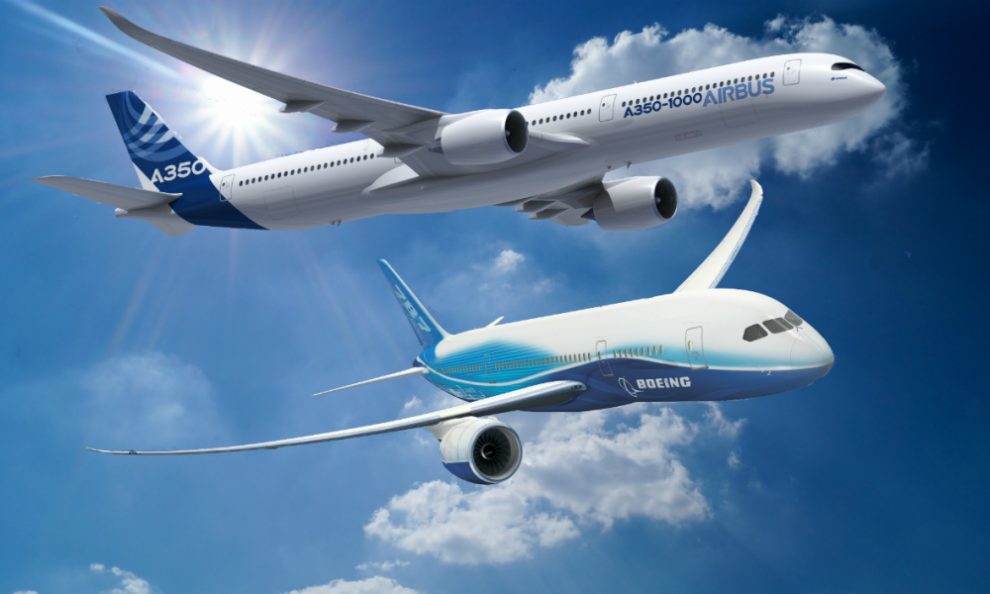Türkiye’s national carrier, Turkish Airlines, will expand its fleet with an order for 220 Airbus aircraft, made up of 150 Airbus’ best-selling A321s and 70 of the world’s most modern and efficient A350 widebody aircraft (50 A350-900s, 15 A350-1000s and 5 A350F freighters). This follows two orders from the airline for 10 A350-900s in September and four A350-900s in July 2023. This latest order will take Turkish Airlines’ total orderbook for Airbus aircraft to 504, of which 212 are already delivered.
“On the new order, Turkish Airlines Chairman of the Board and the Executive Committee, Prof. Dr. Ahmet Bolat stated: “This landmark order is more than an expansion; it’s a testament to our dedication to innovation, operational excellence, and a sustainable future. The addition of these advanced Airbus aircraft to our fleet will not only enhance our operational capabilities but also significantly contribute to our environmental goals. This investment is a crucial milestone in the further evolution of Türkiye’s aviation industry. By modernising our fleet with more efficient and environmentally friendly aircraft, we are reinforcing our leading position in global aviation and contributing to the nation’s prominence as an aviation hub.”
“This order for the latest generation aircraft is a demonstration of the bold vision by Turkish Airlines. The A350-900, A350-1000, A350F and A321 will all be flagship aircraft in their respective category and efficiency drivers to shape the airline’s future and sustainable expansion, with more range, less fuel, noise and emissions and best cabin in class,” says Christian Scherer, Airbus Chief Commercial Officer and Head of International. “The opening into the A350-1000 and the A350F highlights the cross-model value of the A350 family and reinforces our long-lasting partnership with Turkish Airlines and Türkiye’s aviation sector. We are proud to accompany Türkiye’s connection to the world with our state-of-the-art aircraft.”
The A321neo is the largest aircraft in Airbus’ A320neo Family, offering unparalleled range and performance. By incorporating new generation engines and Sharklets, the A321neo brings a 50% noise reduction and more than 20% fuel savings and CO₂ reduction compared to previous generation single-aisle aircraft. Having the widest single-aisle cabin in the sky, the aircraft is the perfect contender for maximising comfort.
To date over 5,600 A321neos have been ordered by more than 100 customers across the globe.
The A350 is the world’s most modern and efficient widebody aircraft and the long range leader in the 300-410 seater category, flying efficiently on any sector from short-haul to ultra-long-haul routes up to 9,700nm. Its clean sheet design includes state-of-the-art technologies, aerodynamics, lightweight materials and latest generation engines that together deliver 25% advantage in fuel burn, operating costs and CO₂ emissions, as well as 50% noise reduction compared to previous generation competitor aircraft. This makes the aircraft a good neighbour and global citizen wherever it flies.
The A350 Family has two versions: the A350-900, and the longer fuselage A350-1000, both offering an ultimate passenger experience even on the longest of flights. Its innovative design delivers a true feeling of spaciousness, with wide seats, high ceilings and alluring ambient lighting.
By end November 2023, the A350 Family has won 1,072 orders from 57 leading customers from all around the globe.
The A350F features the largest main deck cargo door and a fuselage length optimised for cargo operations. Over 70% of the airframe is made of advanced materials, which together with efficient Rolls-Royce engines generate an advantage of at least 20% lower fuel burn and CO₂ emission over its current closest competitor.
With this latest endorsement by Turkish Airlines the A350F orderbook stands at 50 orders from nine customers following its launch at Dubai Airshow two years ago.






